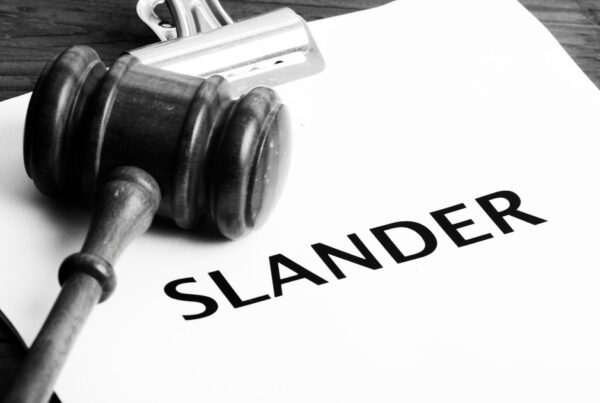 When someone makes a false statement about the ownership or quality of the title of real property, which could lead to financial harm for the owner, that person may be liable for what is referred to as “slander of title.”
When someone makes a false statement about the ownership or quality of the title of real property, which could lead to financial harm for the owner, that person may be liable for what is referred to as “slander of title.”
In a slander of title action, the plaintiff must prove: “(1) a falsehood (2) has been published, or communicated to a third person (3) when defendant-publisher knows or reasonably should know that it will likely result in inducing others not to deal with the plaintiff and (4) in fact, the falsehood does play a material and substantial part in inducing others not to deal with plaintiff; and (5) special damages are proximately caused as a result of the published falsehood.” Bothmann v. Harrington, 458 So. 2d 1163, 1168 (Fla. 3d DCA 1984).
If a person makes false statements regarding your property, which then prevents you from selling it, that could create an action for slander of title. In that context, Florida courts have explained that “[s]lander of title arises upon the malicious publication of a falsehood concerning title which impairs vendibility of the property.” Miceli v. Gilmac Developers, Inc., 467 So. 2d 404, 406 (Fla. 2d DCA 1985).
To prevail in an action for slander of title, a plaintiff must demonstrate that the defendant “knew or reasonably should have known at the time of publication that the publication would likely result in inducing others not to deal with the plaintiff.” Phillips v. Epic Aviation, LLC, 234 F. Supp. 3d 1174, 1211 (M.D. Fla. 2017) (emphasis added).
It is important to distinguish between a situation involving slander of title, and a failure to transfer property, or release a validly recorded mortgage. The latter is not enough to support a claim for slander of title. See Tishman-Speyer Equitable S. Fla. Venture v. Knight Invest., Inc., 591 So. 2d 213, 214 n.3 (Fla. 4th DCA 1991) (“we doubt that actionable publication can occur after the contents of the publication have become part of the public record”).
In short, slander of title involves more than a legitimate title dispute. It requires that someone intentionally, with knowledge, made false statements regarding your property to prevent you from selling it.
For more information on a slander of title or other real estate disputes, contact one of our experienced real estate attorneys at 305-570-2208. You can also email our lead attorney Eduardo directly at eduardo@ayalalawpa.com.
We at Ayala Law PA are passionate about helping those in legal need, so please don’t hesitate to schedule a case evaluation with us online here.
Subscribe to Our Blog
Stay informed with our latest blog posts delivered directly to your inbox. Gain valuable legal insights, tips, and advice from our seasoned attorneys.






